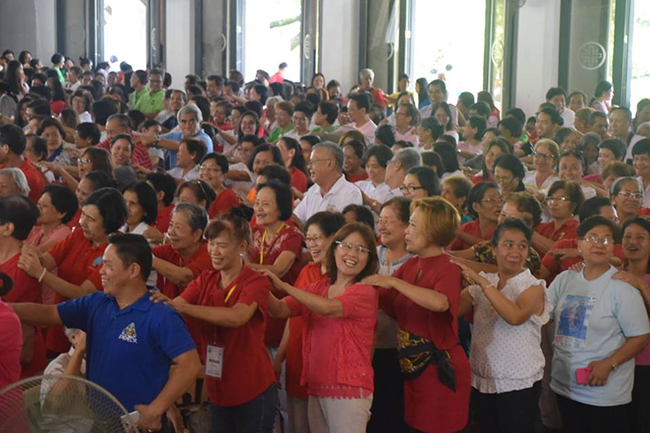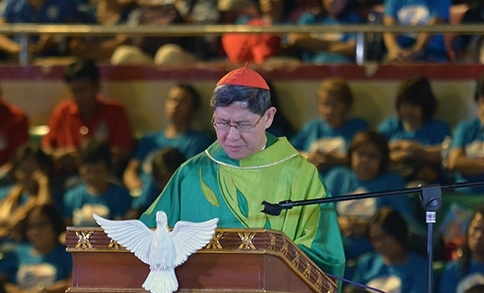
MANILA – How can a group of people regularly coming together to share about the Bible impact an entire community?
Recently, various BEC leaders in the Diocese of Novaliches revealed the vital role of Basic Ecclesial Communities (BECs) and how it has become a catalyst for deeper personal encounters and personal conversion.
“We organize the community, which brings unity and accountability for everyone. There has been many conversions through BECs, both lay and priests, the priests are moved to deeper encounters with the people. And the members of the community from different walks of life come together,” shared BEC Commonwealth coordinator Marissa Atienza.
Relationships matter
BEC Caloocan coordinator Fidela Almario also stressed how “the effect of BEC is really beautiful and important.”
“BEC is very important to my life because [through BECs] my eyes were opened. I realized that I needed my neighbour, and they needed me. Whatever God gave me I need to share with my fellow,” she added.
According to Almario, BECs have become a venue for her to “share [her] blessings.”
“…I cannot keep it to myself, so building of relationship matters most to me, and BEC gave me a community; I find comfort with the people there,” added the Caloocan coordinator.
Challenges ahead
For Diocese of Novaliches BEC lay director, Joe Mar Maulion, BECs link people on the ground with the larger church.
“Through BECs, their parishes reaches people and encourage them to have active participation in the parish events.”
“At the same time in being active, the people recognizes that they are part of the Church, that they are the Church, and that is the most important,” he explained.
Declaring 2017 as the Year of the Parish is proving to have a positive impact on establishing and reinforcing BECs in a various parishes, but challenges remain.
“Because of the Year of the Parish, parishioners were obliged to talk about BECs, evaluate, plan improvements and at the same time [take it as] an opportunity to further organize activities,” said Maulion.
Evaluation results, he said, show that majority of the communities are still in “the liturgical stage,” meaning activities are mostly catechism and Bible-sharing with little social action and involvement.
“We want all these communities to advance to the developmental and strengthen livelihood programs [and soon to the liberational] stage of community,” he said. CBCPNews
Post Credit: CBCP News










